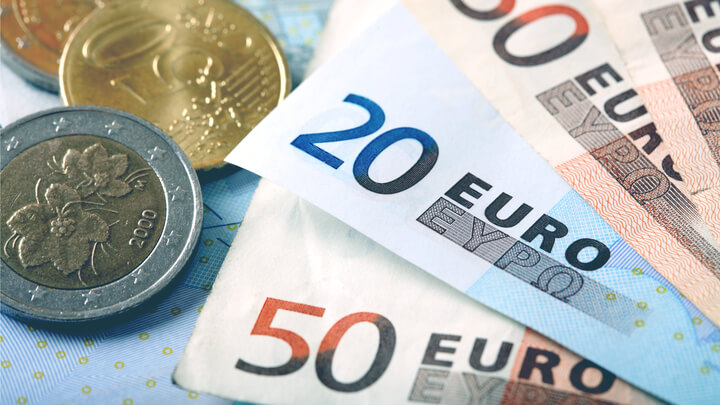Is tap water in Germany safe to drink? A traveller's guide
Planning a trip to Germany? Discover if tap water is safe to drink for travellers. This is your guide on Germany's water quality.

Germany is a large world economy with a rich history of banking and finance. Here you’ll find a simple overview of banks, currency, and smart spending in Germany.
Germany is part of the Euro Zone and as such, operates using the euro.
The Deutsche Mark (DM) was the primary currency of Germany until 2002, when it was replaced by the Euro. Germany won’t accept Deutsche Marks as valid currency any longer, but you can exchange them into Euros at Bundesbank (the German Central Bank) branches or by mail. Otherwise, no other currencies are widely accepted across Germany.
| Category | Details |
|---|---|
| Euro Symbols | EUR, € |
| 1 EUR | One Euro is made up of 100 cents. |
| EUR Coins | Coins are available in denominations of 1, 2, 5, 10, 20, and 50 cents, as well as €1 and €2. |
| EUR Banknotes | Notes commonly used are in 5, 10, 20, and 50 Euro denominations. Although €100, €200, and €500 notes are also available, they won’t be accepted by many businesses. |
The European Central Bank (ECB), which is the central bank for the Euro, is headquartered in Frankfurt. The bank is responsible for administering monetary policy of the Eurozone, and its capital stock is owned by the central banks of all EU member states. The ECB maintains price stability within the EuroZone. As such, Germany is seen as an important financial center in Europe and around the world.
So that you can avoid getting ripped off by hidden fees and exchange scams that advertise low or no fees - make sure you get to know the interbank exchange rate. This rate is the midpoint between the buy rate and the sell rate in global currency markets. It is the ‘truest’ rate, not subject to markups by exchange desks. By using an online currency converter before switching out your home currency for euros, you’ll get an idea what your money is actually worth and be better prepared to spot tourist traps.
When you travel abroad, often the fairest deal is through withdrawing cash from an ATM. As long as you choose to be charged in the local (euro) currency, then the ATM will normally give you the actual mid-market exchange rate - which is to your advantage.
At the airport, train station (bahnhof), or at your hotel, you’ll also find currency exchange desks. These stations are convenient, but they often mark up the exchange rate and charge hidden fees so it’s best to avoid them, if at all possible. If you do have to use them, however, make sure not to give them torn or damaged bills, as the merchant might not accept them.
Your home bank will probably exchange your currency into Euro before you leave, seeing as it is one of the most commonly-used global currencies. The rates should be similar to the ones you will find once you arrive in Germany.
However, as an even better alternative, for simple access to your money abroad - with transparent fees for a fair deal - use Wise. If you have a bank account in Germany, or know someone who does, before you leave you can make a local bank transfer in your home country, and then Wise will send the money to Germany using the real mid-market exchange rate. It's a convenient and cost-effective way have your euros waiting for you, with no hidden fees and no nasty international banking charges.
In this day and age, traveller’s checks aren’t widely-accepted. They’re generally perceived to be an inconvenience, and you’ll have difficulty finding a place to cash them. For most banks, traveller’s check processing isn’t prevalent enough to warrant offering the service. Traveller’s checks don’t even offer favourable exchange rates.
Look into other options, like pre-paid debit cards, if you want a more convenient solution.
There are more than 200 foreign banks with branches in Germany, including over 60 investment banks. Germany uses chip and pin cards, as opposed to North American banks, which may use swipe and sign methods.
However, Germany is a predominantly cash-focused country. Culturally, debt is frowned upon; Germans aren’t accustomed to buying something and paying for it later. Therefore, the number of businesses that accept credit cards may be lower than other countries. Double check before ordering or purchasing to see if your credit card will be accepted.
Visa and MasterCard are the most widely-used cards. Nearly all hotels and popular tourist locations will accept these cards. You’ll have a more difficult time if you’re using Discover or American Express.
ATMs are plentiful in Germany, and the good news is that they are multi-lingual. Your Visa or debit card should be accepted without problems. Some banks have partner agreements with other banks, such as Deutsche Bank and Barclay’s. This will save you withdrawal fees when you’re taking out money. Check for partner agreements with your local bank before you travel.
Also, big cities will have branches of major banks (e.g. Citibank) that may help you to get money with lower fees. Try to use main bank branches if possible. ATMs at railway stations or convenience stores may charge extra.
To help you find the ATMs in Germany that will work best for your needs, use online locators:
If you’re using an ATM, it’s always a safer choice to use one located in a bank lobby if you can. If you’re on the lookout for one such ATM, here are some of the larger banks you may stumble across in Germany.
Regardless of the reason for your trip to Germany, make sure you enjoy it while you’re there. And before you head back, rather than making the exchange twice, make sure to use up all those leftover euros. Treat yourself to something nice before you head back home.
*Please see terms of use and product availability for your region or visit Wise fees and pricing for the most up to date pricing and fee information.
This publication is provided for general information purposes and does not constitute legal, tax or other professional advice from Wise Payments Limited or its subsidiaries and its affiliates, and it is not intended as a substitute for obtaining advice from a financial advisor or any other professional.
We make no representations, warranties or guarantees, whether expressed or implied, that the content in the publication is accurate, complete or up to date.

Planning a trip to Germany? Discover if tap water is safe to drink for travellers. This is your guide on Germany's water quality.

Whether you’re travelling to Germany for business or pleasure, one thing’s for sure: you needn’t worry about finding an ATM.The International Monetary Fund...